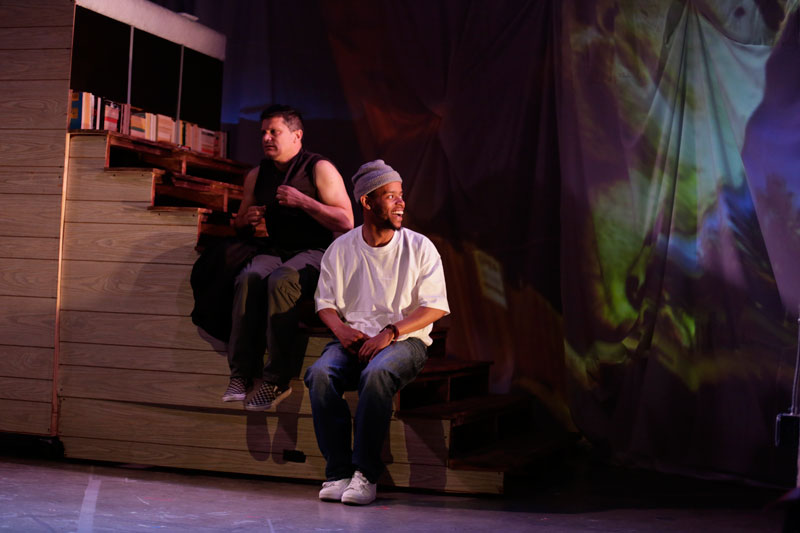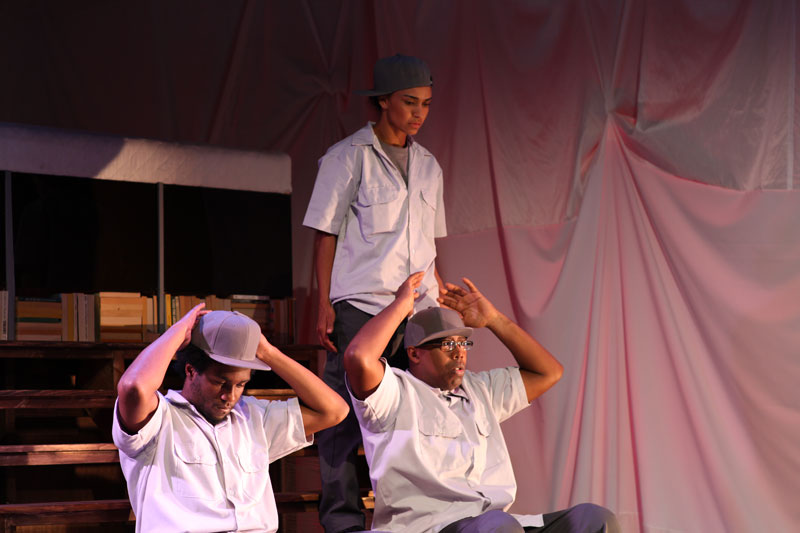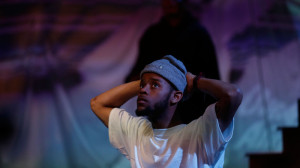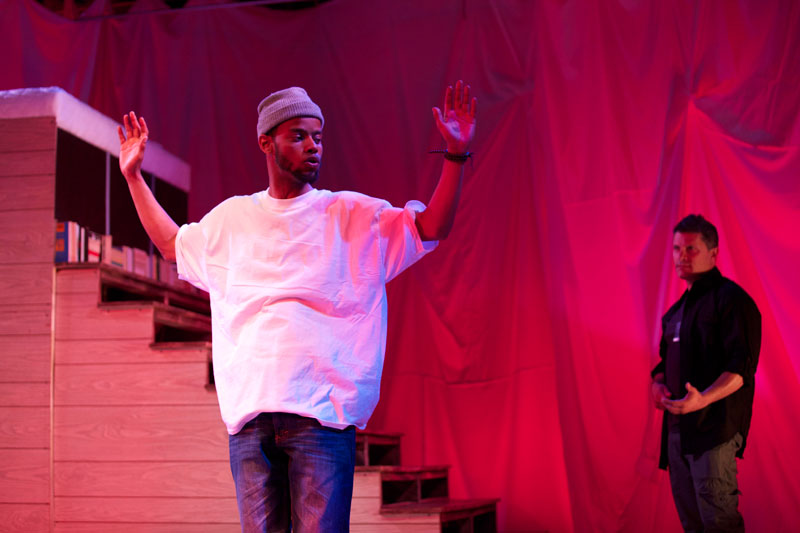Watts doesn’t feel safe in this world anymore. In fact, Watts has never felt safe. Living in West Oakland, he resolved never to leave the house again after the 1991 Rodney King beating by police and the subsequent riots. Then still a child, Watts decided that if that was how black men were treated in the world outside, it would be madness to ever go out again. So for decades he’s just been holed up in his room, reading books. Now pushing 30, he finally summons the will to go out when his mother insists he get a job. It’s New Year’s Day, 2009, and the United States has elected an African-American president. Surely it must be safe now, right?
When he finally ventures out and learns that BART Police Officer Johannes Mehserle shot passenger Oscar Grant the night before while the unarmed young man was lying face down on the ground, it causes more than a relapse. It gives Watts a new mission in life: he’s going to find Mehserle and kill him.
That’s the basic idea behind Chasing Mehserle, the new play by 29-year-old poet and West Oakland native Chinaka Hodge. Watts and his mother Willie were introduced in Hodge’s breathtaking first play, Mirrors in Every Corner, produced in 2010 by Intersection for the Arts, Campo Santo, and the Living Word Project, the resident theater company of Youth Speaks. (The play was also published in the January 2011 issue of Theatre Bay Area magazine.) That same consortium reunites to produce Chasing Mehserle, which will have its world premiere at Intersection before moving on to Z Space for one weekend at the end of May.

It’s not necessary to know Mirrors in order to appreciate Mehserle; there are occasional references to the now-absent relatives that peopled the previous play, but you’re told everything you need to know about Watts in the here and now. That’s not to say that either the play or the character of Watts actually makes sense. The idea that a guy who never leaves the house is going to hunt Mehserle down is just plain silly, and actor Michael Wayne Turner III widens his eyes with a cartoonish crazy expression whenever he, as Watts, talks about his plans. The best plan he can come up with is to go to a farmer’s market in Marin, where Mehserle grew up, and ask around because maybe somebody knows something. (What’s more, how believable is it that a guy who never ventures outdoors is actually allowed to drive there.)
Though the strategy makes Watts seem none too bright, it does provide an opportunity for a variety of voices to weigh in on the incident, as Watts interviews everybody he runs into in search of clues. An omnipresent four-person chorus dressed (by costumer Courtney Flores) in identical street clothes fills in the world outside Watts’ window that he has to brave for the first time in years.

Much of the time the chorus seems curiously underutilized in the staging by directors Marc Bamuthi Joseph and Sean San Jose. From time to time they all do synchronized abstract movements that are often hard to interpret and occasionally all too clear, as when they all put their hands behind their heads as if held at gunpoint. Most of them play a couple of roles: Tommy Shepherd is a flummoxed BART cop and a sentimental acquaintance of the Mehserles; Johnathan Williams is a sardonic grocery clerk and a blunt-smoking neighborhood youth; and Tristan Cunningham plays several eyewitnesses to the Oscar Grant shooting with chameleonlike versatility. Oddly, one of the chorus members, 18-year-old Isiah Thompson, is given no characters to play at all. Mostly the chorus stands around murmuring agreement and encouragement during monologues, and stands in for crowds on the rare occasion that Watts ventures out of the house.



